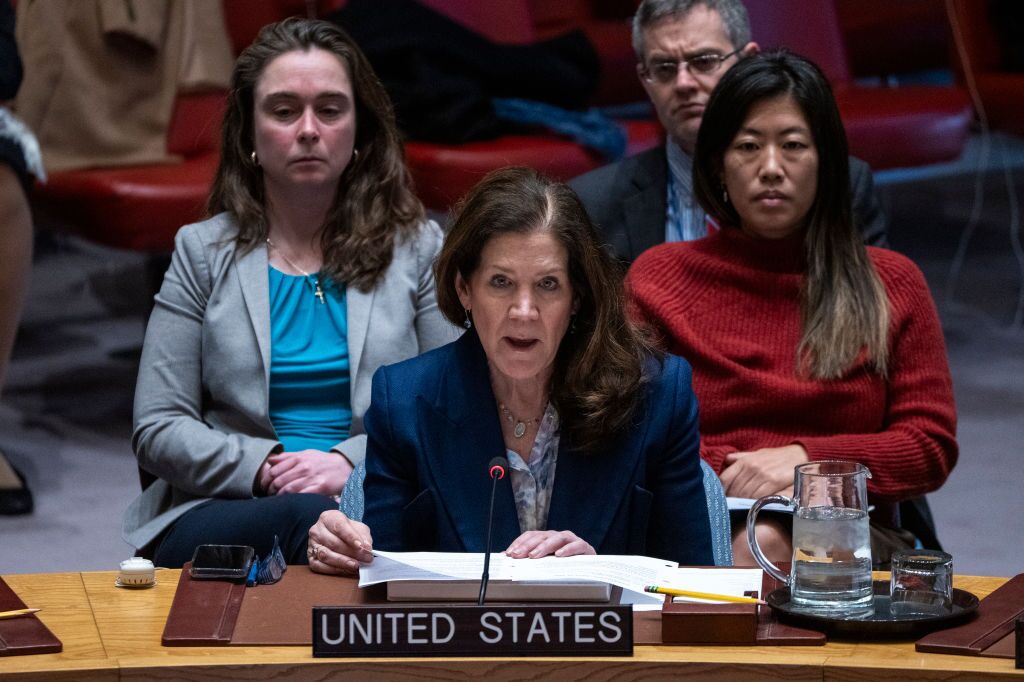U.S. Position at the U.N.’s Annual Women’s Rights Gathering Raises Alarm

This article was originally published by PassBlue, a nonprofit newsroom focused on global women’s rights.
Understanding the Political Declaration
Activists and organizations viewed the political declaration adopted during the Commission on the Status of Women (CSW) session as a notable achievement, despite significant pushback from the United States. Nonetheless, many remain apprehensive, as the declaration reflects limited advancements in gender equality after three decades of advocacy amid political distractions and insufficient funding.
The nonbinding declaration, adopted on March 10 during the 69th session of the CSW, was notably diluted due to U.S. resistance during the lengthy negotiation process. The focus remains on global women’s rights, though the content was modified to mitigate disagreements with various member states, especially the U.S.
U.S. Opposition to Gender Language
While many activists refrained from attributing direct responsibility to the U.S. for the softened language on inclusion and rights, several diplomats indicated that the U.S. opposed gender-inclusive terminology, particularly terms aligned with diversity, equity, and inclusion (DEI) principles and the Sustainable Development Goals.
According to a statement from the U.S. mission to the U.N., “It is the policy of the United States to use clear and accurate language that recognizes women are biologically female and men are biologically male,” expressing disappointment that the declaration did not prioritize the needs of women and girls through exact language.
Jonathan Shrier, a diplomat from the U.S. mission, elaborated at a CSW meeting, asserting, “The United States government will no longer promote radical ideologies that replace women with men in spaces and opportunities designed for women.” He also criticized the phrase “equal pay for work of equal value,” advocating instead for “equal pay for equal work,” which raised concerns about its implications for gender equity in pay decisions.
Challenges Ahead for Women’s Rights Advocates
The current U.S. stance on women’s roles poses a significant obstacle as civil society groups push for a woman to become U.N. secretary-general for the 2027-2031 term. Advocates emphasize the need to build a coalition to promote this goal, particularly in light of increasing opposition to DEI principles.
“In the current climate of increasing hostility toward the Diversity, Inclusion, and Equality agenda, securing the selection of a woman as the next U.N. Secretary-General will be a significant challenge,” noted Maiara Folly, executive director of Plataforma CIPÓ.
Commemoration of the Beijing Declaration
This year marked the 30th anniversary of the Beijing Declaration and Platform for Action, which serves as a fundamental strategy for promoting gender equality. Despite this milestone, recent discussions emphasized the insufficient attention given to critical reproductive rights, climate justice, and economic justice.
“We’re making the case for why women should be in the room when it has been proven that if women are not in the room in peacekeeping processes, we don’t have durable peace,” stated Tonni Ann Brodber from the U.N. Women’s Peace and Humanitarian Fund.
As debates unfolded, opposition from the U.S. and other countries like Argentina was highlighted, particularly concerning their limiting measures on women’s reproductive health access.
A Call to Defend Rights and Progress
Multiple speakers during the CSW meetings expressed concern over anti-rights movements threatening hard-won progress in women’s rights. Activists highlighted that essential language on women’s rights was absent from the declaration, calling attention to threats against reproductive rights globally, especially amid trends to roll back such rights.
Happy Mwende Kinyili, co-executive director at Mama Cash, remarked on the irony of revisiting issues settled decades ago, emphasizing that funding for gender advocacy is declining. The OECD shows a consistent drop in official development assistance (ODA), impacting many low- and middle-income countries.
Future Directions and Climate Justice
As the U.N. Secretariat acknowledges the ongoing threats to women’s rights, it is critical for member states to rally around a comprehensive commitment to safeguard and advance these rights in response to rising global challenges including climate change. Ishaan Shah from the Young Feminist Caucus lamented the stagnation in climate policies, stressing the urgent need for a proactive response amidst escalating crises.
U.N. Secretary-General António Guterres observed on March 10 that women’s rights are increasingly “under siege,” underscoring modern threats of violence amplified by technology.
